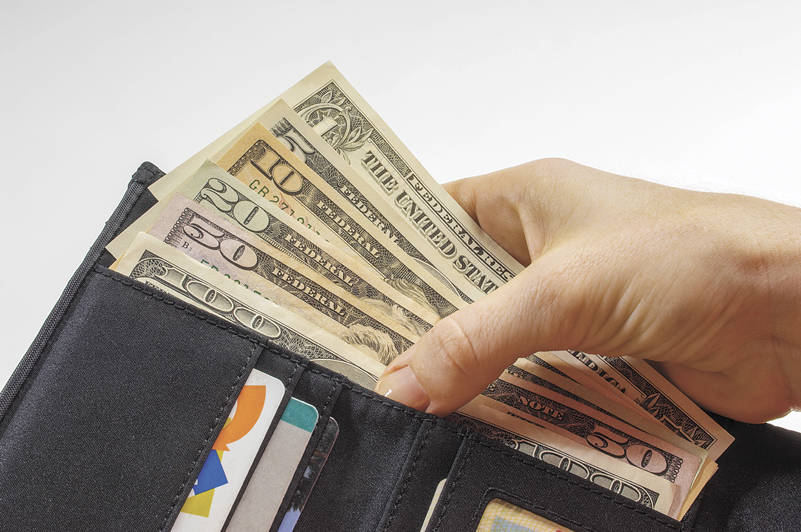By Morf Morford
Tacoma Daily Index
Love them or hate them, taxes define and control, or at least impact every one of us.
As one of life’s few absolutes, taxes, their burden, their fairness and their equity have all hovered over nations, empires and revolutions for all of human history.
“No taxation without representation” was a rallying cry of the early American colonies.
Notice in that simple phrase, that the complaint was not directly against taxes themselves, but what the tax payer should get in return for paying taxes.
In the 1770s the American colonies presumed that they, as loyal British citizens, would have fair representation in Parliament.
That didn’t happen – or at least to the degree the colonists wanted it to.
Or at least that was the excuse.
But no matter what our individual or national history of taxes, we resent and complain about them.
You could think of taxes as a floating needle across a graduated spectrum, with various entities; states, municipalities, corporations and individuals all pay – and receive – some aspect of the tax base shared, it seems, perpetually inequitably by all.
We have federal, state and local taxes. Most of our local tax base comes from property and sales taxes.
State Taxes
By most criteria, we in Washington state find ourselves consistently in the middle.
How equitable our tax structure is, however, an entirely different question.
But our standing among the other states, like taxes themselves, keep floating.
Way back in 1998, Washington peaked at 11th highest in the country, to 20th in 1999 and has hovered around the upper 20s and lower 30s ever since.
You can see the most recent tax distribution by state here: https://wallethub.com/edu/states-with-highest-lowest-tax-burden/20494.
As you look over this survey, you’ll note that, when it comes to overall tax burden, New York has the highest, with Hawaii as a close second. We in Washington stand at a mid-range of 24th.
But taxes, like everything else in life perhaps, are not distributed equally.
States have three primary tax avenues; property tax, state income tax and sales and excise taxes.
Washington is one of the few states that does not have a state income tax (the others are Alaska, Florida, Nevada, New Hampshire, South Dakota, Tennessee, Texas, and Wyoming).
And when it comes to property tax, we are at 31st place (out of 50).
New Hampshire has the highest property tax – with Vermont as a close second.
Alabama has the lowest property tax (at less than 1 1/2 percent) with Oklahoma coming in next to last.
It is in sales and excise tax where Washington state collects most of its tax base.
Hawaii has the highest sales and excise tax rate, with Nevada coming in second and Washington state coming in at third.
Federal Taxes
The problem with taxes is that we, like most nations and states, cannot decide which behavior we want to punish (as in “sin” taxes on alcohol, for example) or encourage (like tax rebates on energy improvements or home mortgage payments) or if taxes are to pay for services (like utilities, parks or schools or transportation) that don’t “pay for themselves”.
And we are not likely to agree on how our tax dollars should be spent.
74% of US citizens, for example, are not convinced that the federal government has spent tax dollars wisely during the COVID pandemic.
And 222 million of us are not convinced that, even under “normal” circumstances, our tax dollars are spent as they should have been.
32% of us think charities would be better managers of our tax dollars. 38% of us say that we’d be willing to move to another country to avoid taxes. 27% said that they’d get an IRS tattoo to avoid paying taxes.
Like everything else in the shadow of 2020, the tax year – and deadlines – look nothing like they usually have.
Tax Day is traditionally April 15, but 2021 will be especially messy as governments across the country struggle to cover shortfalls stemming from the COVID-19 pandemic, millions of people hustle for income to actually pay taxes on, and protesters urge us to rethink how our tax dollars are being used.
But, of course, there will be a Tax Day this year as always, proving that taxes truly are among the few things in life that are unavoidable.
Tax Day was delayed until May 17 for most people due to COVID-19, and until June 15 for people impacted by winter storms.
Whether you see it as a civic duty, a necessary evil or cause for a few choice expletives, it’s no surprise that most of us join an accidental and historical fraternity in our dislike of tax season.
We might see it as the cost of citizenship or the tip of the spear of tyranny, but whatever our gut response, year after year we muddle through tax time.
I don’t know about anyone else, but I generally waver between wanting to escape to a desert island off the grid to hoping that I get any kind of refund and vowing to be more organized next year.
With deductions, write-offs and investments, my taxes seem to get more complicated each year.
From the expense and hassle of the process to questions of fairness and fears of basic math or misunderstanding of ever-changing and increasingly complex tax laws, regulations and exemptions, there are many reasons for our spring tax anxiety.
An IRS tattoo is looking better every day….
******
You can see a full info-graphic on taxes 2021 style here: https://wallethub.com/blog/tax-day-facts/11835





